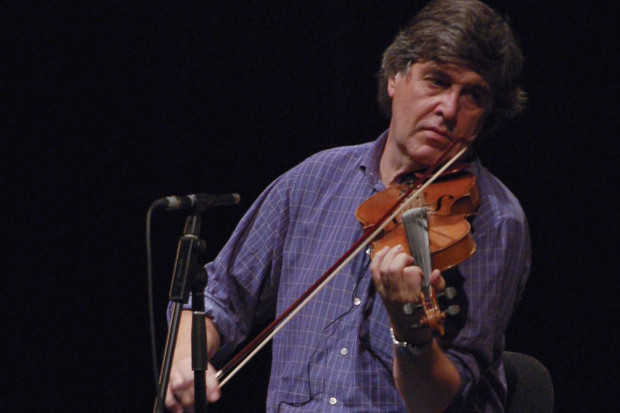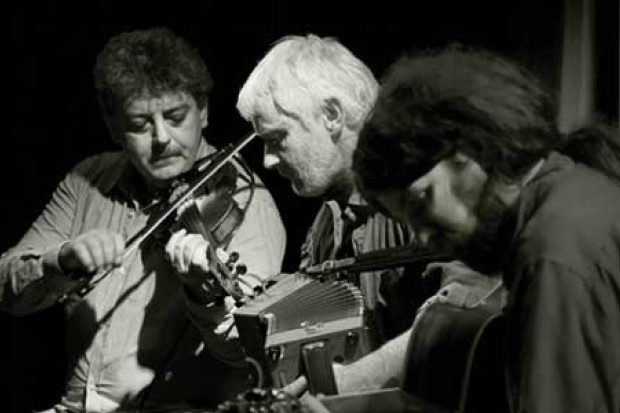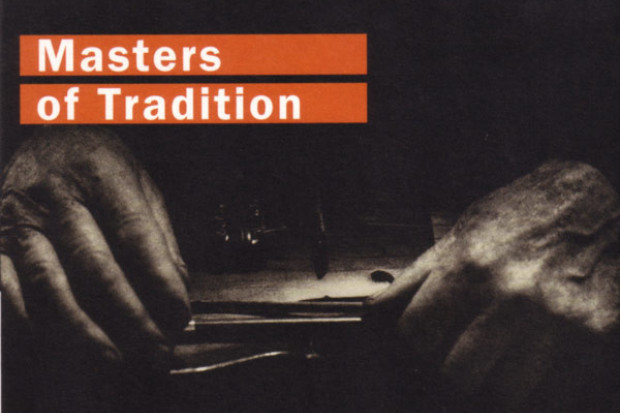Scotland's Centre of Traditional Excellence
To outsiders, it sometimes seems as if Ireland has no problems about the passing on of its traditional music from one generation to another. An English observer of the traditional music landscape, say, would be astonished to find how routinely musicians of all ages, the very young included, will mingle in an Irish session; the like would very rarely be seen in England, where greying and balding pates predominate (and this writer should know!). Things would be better than that in lowland Scotland and better yet in the Highlands and Islands – but still not as good as in Ireland.
Of course, Ireland can’t really afford complacency, for all the robustness of its traditional culture. There are pressures on that culture, and all of them have regularly been argued over in this magazine during the last year and a half. Generally, though, the scene is pretty healthy in Conn’s Fold. To ensure that the scene is correspondingly healthy in Caledonia the Fair, the Scottish Executive (Scottish government) has initiated a ground-breaking project to teach youngsters traditional music in depth within an ordinary local school. The project, it is hoped, will promote the nation’s vast store of music and song and will help to produce the young performers of tomorrow. It is the Centre of Excellence in Traditional Music, based at Plockton High School.
The Centre – usually and less exhaustingly called Plockton Music School, or known in Gaelic as Sgoil Chiùil na Gáidhealtachd – is the Executive’s three-year venture (initially, yet surely to be extended), with support from Highland Council. To foster traditional music, it follows earlier and similar initiatives in classical music elsewhere in Scotland. That relatively remote (if staggeringly beautiful) Plockton was chosen to house it isn’t accidental, albeit that it has to recruit youngsters from the whole country: Highland Council was supportive, the school like many in the Highlands had its own hostel, its Gaelic-speaking headteacher Duncan Ferguson was naturally keen, and traditional music was already strong locally. In short, everything was, and is going for it.
‘It just had to be here,’ says its Director Dougie Pincock, piper extraordinaire and ex-member of The Battlefield Band, amongst many other things, ‘you simply couldn’t imagine it in Glasgow, Falkirk or Dundee.’ His budget comes from the Executive’s Excellence Fund and since starting his post in May 2000 he’s been busy overseeing the refurbishment of the hostel as the Centre’s core, interviewing prospective students and purchasing instruments and recording equipment. The latter, incidentally, is important. ‘I want the students familiar with recording studios, not so much the knob-twiddling aspect – ‘though they do some of that and as an amateur recorder myself, I can show them how. More, they need to know what recording feels like, including for session musicians with the skills they need, like playing things repeatedly without sounding mechanical.’ This sort of direct input accompanies his responsibility for groupwork, for teaching three youngsters whistle as their second instrument, for backing up for tutor Ian MacFadyen’s six piping students. Other than that, though, he’s essentially an administrator, he says slightly ruefully.
He’s responsible for twenty students, from 12 to 17. They study the normal curriculum at the small Ross-shire school, but also take a main and a secondary music subject. These are not examined. The subjects’ tutors represent a galaxy of the country’s finest musicians. They are, for Scots song Christine Kydd, for Gaelic song Mary Ann Kennedy, for piano Andy Thorburn, Ingrid Henderson and Blair Douglas, for clarsach Ingrid Henderson and Mary Ann Kennedy, for fiddle Ian MacFarlane and for accordion Blair Douglas. The reputation of the tutors is a big draw for the young people. (So is Dougie’s being there. ‘I loved Battlefield when I was young,’ says Claire Lynas, a 16 year-old piper from Livingston in Central Scotland, ‘but it was scary auditioning for Mr Pincock because he’s such a good piper’). Unsurprisingly, the youngsters quickly identify with their tutors (‘Mr Douglas and Mr Thorburn, they’re brilliant,’ says 14 year-old pianist Ruairaidh Campbell from near Dingwall and the support tutors, too. These are Louise MacKenzie and Angus Grant (fiddle), Karen Marshalsay (clarsach) and Arthur Cormack (Gaelic song).
Most of the students are from the north-east of Scotland or from the Highlands and Islands. Just three are from the Central Belt and Perthshire. This, Dougie explains, reflects the strength of traditional music in the north and west with their piping tradition as well as the Gaelic Mods and the Feisean; these are (usually) summer schools, aimed at teaching young people. But all the students, he says ‘know their tradition’, understand their instruments and are by definition already very good. Tutor Christine Kydd notices something else about them, too. ‘They seem to know where they’re coming from, they’re at ease with themselves and they’re nicely confident about their abilities.’
One issue for them, however, is that they have to work harder than their fellows at the school. Weekly, they’ll do ten hours extra study. This comprises two hours of one-to-one tuition, on top of group learning sessions (like how to put a set of reels together or how to arrange a song) and regular supervised practice. Teaching emphasis is on playing or singing techniques, with some theory. Students don’t have to be able to read music, although obviously it helps. Dougie also runs them through basic stage skills. These, he says, are often familiar to the pipers already (who’ve had to learn them for competitions) but not for the rest. He’ll likewise talk a little to the older students about personal relationships in bands, about the need to avoid fall-outs and so on. Yet despite all these extra pressures of time and so many new things to learn, the youngsters seem to take it in their stride. ‘Yes, probably we’re working harder than other people,’ chirrups 12 year-old piper Christina Files from Oban happily, ‘but if music matters to you, you don’t feel like that, you just enjoy it.’
Because the Centre’s base is the hostel beside the school, there’s always the risk of the students coming to feel distanced, for all that they’re still part of the wider institution. ‘We don’t though,’ says Christina, ‘we get on fine with the others. They don’t think we’re different, they’re interested in us, they ask us what’s happening’. Occasionally, the Centre’s unusual demands can cause its students to miss out on ordinary school life. ‘Yes,’ explains Ruaraidh, ‘like when there’s some school event, but we can’t go because of evening study.’ Whatever, if the twenty were ever to appear seriously apart, alarm bells would start ringing in high places. ‘I’d be very unhappy if they felt distanced from their fellow pupils,’ says Duncan Ferguson, ‘or worse, if they ever thought themselves better than them.’
The students becoming separated would similarly be anathema to Dougie. He’s very concerned about maintaining what he sees as the core values of the Scottish tradition (which are much the same as Ireland’s, of course). These include a willingness to share musical experience, inclusivity, anti-elitism and a duty to hand on the tradition preserved and enhanced. The Centre, he explains, doesn’t exist for ‘hothousing musical careers’ but is part of an all-round education. ‘We want people to leave with skills and having enjoyed the experience, to know the background to Scottish music and to hopefully feel they’re part of a tradition which they can pass on. The last thing, by the way, is vital… Yes, and part of it is a hobby horse of mine: I want them always to acknowledge those who’ve written the songs and tunes. That’s about history, but it’s about respect, too, maybe the guy was up all night composing, it’s manners. My first pipe tutor when I was 10 said always to do that, and he was right.’
Just as he’s concerned about any gap growing between his twenty and the school’s remaining three hundred and thirty students, so too is he anxious to foster co-operative working within his group. He very much supports small group learning, for instance, with students helping each other. (So does Christine Kydd: ‘One thing I really want is for them to be a resource to each other. And they are, it’s really heartening’). Another way of building up a ‘community of music’ is to ensure that everyone has at least one experience in common every week. So they do a compulsory singing session, Scots songs or Gaelic ones. Dougie considers that there’s too little emphasis put on singing amongst music students generally. Encouragingly, he finds that any early reluctance from youngsters who had expected only to be playing instruments will quickly subside once they realise that singing is worthwhile and enjoyable in its own right. ‘And,’ he says, ‘the songs give them a better overall picture of the tradition as well.’
Of course, however much that he and his team get all of this right (and the indications from the politicians and the public as well as from the students themselves are that it is being got right), there exists doubt about whether an initiative like this is actually enough. Or whether, even, with what might seem to some as its ‘elitism’, that it’s the right way forward anyway…
‘The Centre of Excellence’ notion is problematical, not least because the perfectly valid word ‘excellence’ too often nowadays has the queasily tendentious ring of the public relations industry to it. Besides, it sits uneasily with Scotland’s egalitarianism. This, after all, is a country in which Burns’ song ‘A Man’s A Man For A’ That’ is a sort of national anthem; a country, too, where the pithy phrase ‘I kenned his faither’ is current, meaning ‘see him with his airs and graces, but we remember where he came from’.
‘Yes, I know the word “excellence” upsets some folk,’ Dougie reflects, ‘but it no longer upsets me. Truthfully, our students are excellent, which should be recognised. Unfortunately, you could think that if you’re not here, then you’re not excellent. That’s rubbish, of course. Our difficulty, I think is being the only one of our kind. If there were more places like this, it wouldn’t feel divisive… Because actually, all we’re doing here is polishing the top of a very large iceberg.’ Christine Kydd thinks similarly. ‘I believe this place represents one of the ways forward, but we need far broader provision. We must educate all young people in their traditions, so they can pass them on to others in turn.’
There are other initiatives taking place in the country, naturally. One is the degree programme at the Royal Scottish Academy of Music and Drama, to which multi-instrumentalist and ex-Battlefield member Brian McNeill has lately been appointed as Director of Traditional Music. There are also some very valuable projects in primary schools in Fife and Stirlingshire, involving all children in the traditional arts. The Feisean, already mentioned, are very active also in promoting Gaelic culture, too.
Unfortunately, there’s no over-arching vision. The Executive’s dismal ‘Cultural Strategy’ document of 1999 contained barely a reference to traditional music. But at least the Executive is supporting Plockton now, and the signs are that its funding, due to end in March 2002 will be renewed. Unsurprisingly, Dougie Pincock hopes for this and for more similar schemes elsewhere, too, plus a more integrated approach to encouraging young Scots towards taking up their country’s traditional music and song,
But amongst all these debates, what do the actual youngsters at Plockton say right now about their unique experience? Perhaps the final word should go to Shona Donaldson, a 16 year-old singer from Huntly in Aberdeenshire. ‘I really like it here,’ she enthuses, ‘it’s very friendly, it’s fun. I like the different sort of songs here, quite different from Aberdeenshire. I kind of got into Scottish music through my grannie but it wasn’t easy to get it at school. There was some at Primary but none at the High School. I first heard about this school from my dad and as soon as I did I thought “that’s for me!” It’s funny, I’d always told my friends back home I’d never leave Huntly, ever. But here I am. And I’m so glad the chance was there for us, because you know, it’s just so brilliant.’
Published on 1 March 2002
Steve McGrail was a singer, musician and writer from Scotland. He wrote several articles for The Journal of Music and was a great supporter of the magazine from its very first issue. Steve sadly died on 11 May 2016, aged 69.












